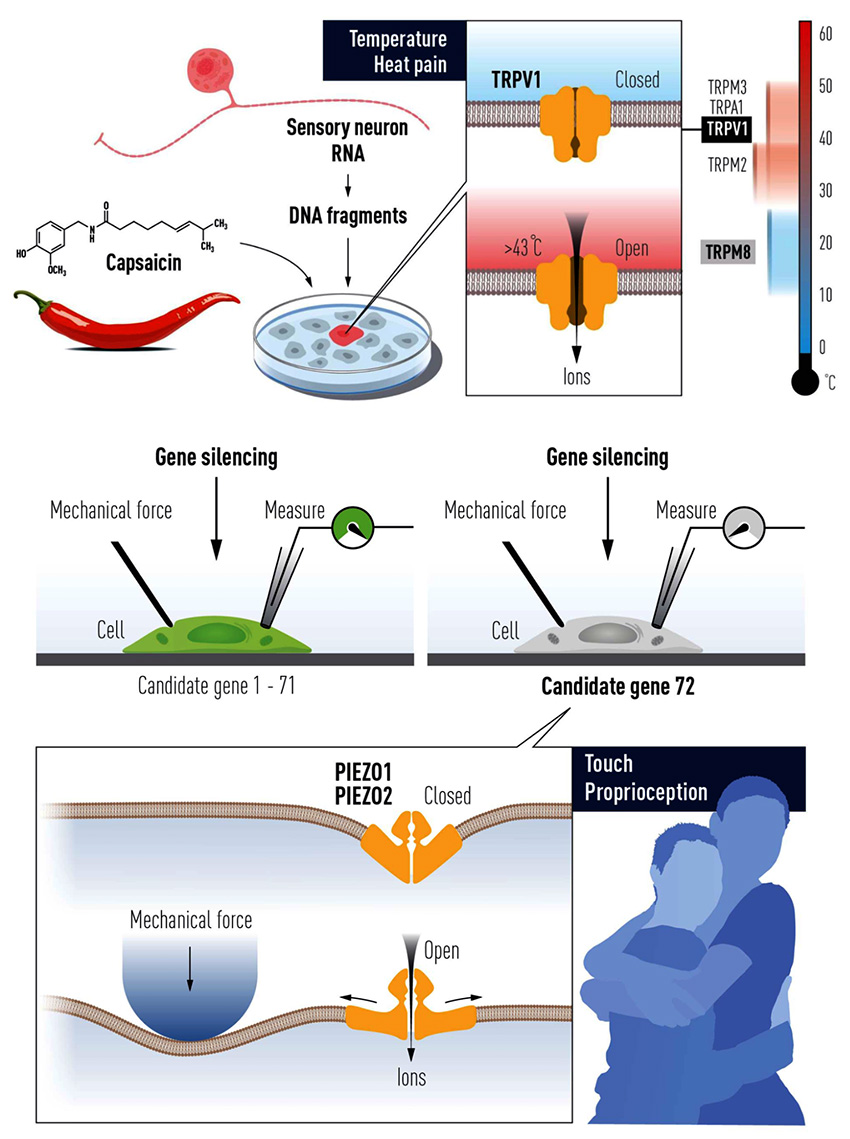Important Facts For Prelims
Nobel Prize for Physiology/Medicine, 2021
- 05 Oct 2021
- 3 min read
Why in News
Recently, two United States-based scientists, David Julius and Ardem Patapoutian, have been awarded the 2021 Nobel Prize for Physiology/Medicine for their discoveries of receptors for temperature and touch.
- They have focused their work on the field of somatosensation, that is the ability of specialised organs such as eyes, ears and skin to see, hear and feel.
Key Points
- About the Discoveries:
- David Julius:
- He discovered TRPV1, a heat-sensing receptor.
- His findings on the skin’s sense of temperature was based on how certain cells react to capsaicin, the molecule that makes chili peppers spicy, by simulating a false sensation of heat.
- Ardem Patapoutian:
- He discovered two mechanosensitive ion channels known as the Piezo channels.
- The Piezo1 is named after the Greek word for pressure, ‘píesi’.
- He is credited for finding the cellular mechanism and the underlying gene that translates a mechanical force on our skin into an electric nerve signal.
- He discovered two mechanosensitive ion channels known as the Piezo channels.
- David Julius:
- Significance of Discoveries:
- The findings have allowed us to understand how heat, cold and mechanical force can initiate the nerve impulses that allow us to perceive and adapt to the world around us.
- This knowledge is being used to develop treatments for a wide range of disease conditions, including chronic pain.
Note
- Somatosensation is a collective term for the sensations of touch, temperature, body position, and pain recognized through neural receptors in the skin and certain internal organs.
- It includes processes such as” mechanoreception, thermoreception, proprioception.
- Mechanosensitive channels are fascinating proteins, being able to serve both as sensors and effectors.
- Embedded in membranes, they convert mechanical stimuli such as in-plane membrane tension and curvature into electrical or biochemical signals, leading to regulation of a wide repertoire of cellular processes allowing adaptive response.
About Nobel Prizes
- The will of the Swedish scientist Alfred Nobel established the five Nobel prizes in 1895.
- The Nobel Prizes are a set of recognition given to fields of Chemistry, Literature, Peace, Physics, and Physiology or Medicine by The Nobel Foundation.
- The Nobel Foundation is a private institution established in 1900, has ultimate responsibility for fulfilling the intentions in Alfred Nobel’s will.
- The prizes in Chemistry, Literature, Peace, Physics, and Physiology or Medicine were first awarded in 1901.
- In 1968, Sveriges Riksbank established the Sveriges Riksbank Prize in Economic Sciences in Memory of Alfred Nobel.





